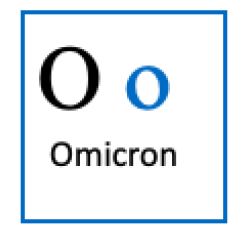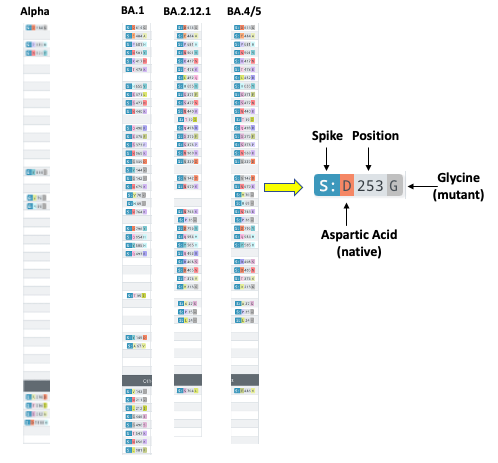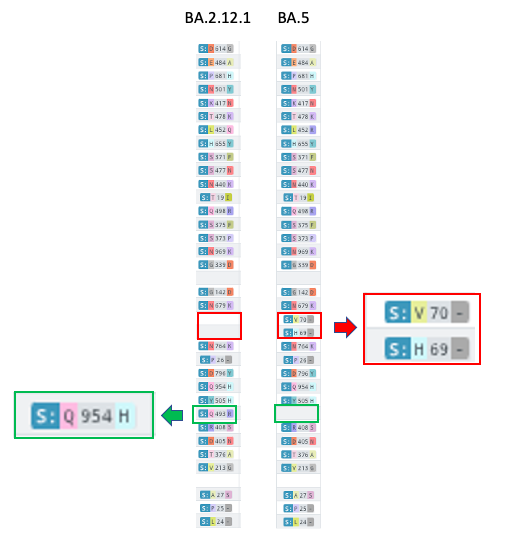The FDA just voted to approve a different Covid vaccine; this one based on one of the Omicron subvariants. But the decision was anything but simple. A look at the science.

Somehow we pulled it off. More or less. The science behind the SARS-CoV-2 – its rapid identification followed by the determination of its structure, mode of action, and "weak spots," as well as the insanely fast development of vaccines and antiviral drugs to keep it under control was some of the best science you'll ever see.
Try telling that to the virus.
Despite our best efforts, SARS-CoV-2 still has a few cards up its sleeve, managing to stay at least one step ahead of a focused, worldwide research effort. Nowhere is this more evident than the current discussion of whether Pfizer or Moderna should attempt to develop an mRNA booster based on the spike of the Omicron variants (rather than that of the original Wuhan strain 2+ years ago). The FDA's Vaccines and Related Biological Products Advisory Committee voted 19-2 to recommend a booster based on the Omicron BA.1 subvariant. More on this later.
Depending on who you ask, this is either a terrific idea or a waste of time.
A little refresher...
When the original strain hit the world in early 2020 it was terrifying. Not only were people dying in ghastly ways or dependent upon mechanical ventilation to stay alive but also the damn thing was insanely contagious! Of course, we didn't even know the meaning of "contagious" until the Delta variant hit only to be followed by Omicron, which blew the doors off of Delta and the rest of them.
As if Omicron hasn't already been a big enough pain in the ass, it has generated a record number of clinically significant sub-variants (variants of concern). Making things even more complicated is that these subvariants are even trickier than their predecessors; In general, Omicron is better at evading vaccines but, as you'll see below, newer sub-variants like BA.5 are perfectly content to infect you, even if you had immunity to earlier Omicron subvariants such as the BA.1 and BA.2 "families," an appalling lack of immunological etiquette if you ask me.
Even though an Omicron-based vaccine (1) might provide better coverage than the original "recipe" does it make sense to even try to develop it? More on that later.
First, the science. As I have previously explained, the SARS-CoV-2 RNA that directs the protein synthesis of the spike protein mutates very easily. Figure 1, which comes from the Coviants.org site, makes this crystal clear.

Figure 1. Amino acid mutations of three Omicron subvariants plus the Alpha variant (Left). Each colored box represents a single amino acid change at a given position in the spike protein. (Right) An enlarged box showing that at position 253 there is a mutation where glycine (G) replaces aspartic acid (the amino acid in the native strain).
In Figure 1, the three columns on the right column show mutations found in the subvariants BA.1 ("original” Omicron), BA.2.12.1, (which quickly replaced BA.1 in early 2022), and BA.5 (now the predominant circulating variant in the US), respectively. Each colored box represents a single amino acid mutation. I added Alpha (Left), the first variant of concern, following the original Wuhan strain, as a visual tool to demonstrate just how many mutations have "piled up" (2) in less than two years. Covid nostalgia buffs will notice that Alpha has very few mutations compared to later variants. The SARS-CoV-2’s increasing mutability is a cause for concern because it provides ever more substrates for the process of natural selection to find more “fit” variants – something that is all but inevitable.
Figure 2, below, takes a closer look at two of the clinically important Omicron subvariants, BA.2.12.1 (early 2022) and BA.5 (now). Note that these differ by only three amino acids (out of 1,273) in the spike); otherwise, the two are identical. Yet, this is enough to cause a subtle difference in the immune profile of the virus. BA.5 is a bit more infectious

Figure 2. BA.2.12.1 has a glutamine (Q) to histidine (H) mutation at position 954 (green box) while BA.5 has two deletions (the minus sign) at positions 69 and 70 (red box). Otherwise, the two are identical. For reasons of simplification, I have used the header BA.5, even though it reads BA.4&5 on the Covariants site. The two are frequently lumped together because they are so similar.
Which (if any vaccine) do you make?
The inherent problem here is obvious: we already have seven Omicron variants of concern, and it's all but certain that others are mutating their hideous little genomes as you read this. It is this rapid turnover of variants of concern that forced Pfizer and Moderna to make some difficult decisions.
- Is a booster worth making at all? Is there a reason to believe that an Omicron-based vaccine will have any more impact on Covid than existing vaccines?
- If so, which subvariant(s) will be used to determine the composition of the booster?
An interesting aside
The FDA's advisory panel voted 19-2 to recommend a vaccine based on the Omicron BA.1 subvariant. It was rather surprising in that one of the two "no" votes belonged to Dr. Paul Offit of the Children’s Hospital of Philadelphia – as qualified a vaccine expert as you'll ever find. (Offit is a former member of the ACSH board of directors.) Offit said that he would support a booster against the BA.4/5 subvariants but not for BA.1. There is something inherently disquieting about being on one side of a vaccine vote when Offit is on the other.
Apparently, the FDA agreed:

Source: Washington Post, June 30, 2022
But this was not a simple decision because there was limited evidence that BA.1 might be a suitable target. According to a Pfizer press release
Omicron-adapted monovalent candidate given as a fourth booster dose elicited a 13.5 and 19.6-fold increase in neutralizing geometric titers against Omicron BA.1... [which is higher than the Moderna] bivalent vaccine candidate [which] exhibited a 9.1 and 10.9-fold increase against Omicron...Preliminary laboratory studies demonstrate both Omicron-adapted candidates neutralize Omicron BA.4 and BA.5 though to a lesser extent than they do for BA.1.
Does an Omicron-based booster make sense at all?
Although the FDA has already decided yes there are still some questions to consider:
Will an Omicron booster, single or bivalent, make a difference in the health burden of Covid? After all, it is widely believed that Omicron does not cause serious disease. There are differing opinions.
Omicron infection generally causes less severe disease than infection with prior variants.
CDC COVID-19 site, March 29, 2022
However, this has recently been disputed by researchers are Yale:
A new study by investigators at the Yale Center for Outcomes Research and Evaluation (CORE) and Harvard shows the Omicron variant of the COVID-19 virus caused more excess deaths in just eight weeks than the Delta variant caused in its entire 23-week outbreak
Dr. Offit offers another view:
We need to see clear evidence that adding omicron or an omicron variant vaccine to the ancestral strain vaccine clearly lessens the risk of serious illness caused by COVID. To date, we haven’t seen that evidence.
Paul Offit, M.D., Private communication, June 30, 2022
Apparently, Offit remains unconvinced that any Omicron vaccine will provide an additional benefit, but he maintains that if we're going to develop one it should at least be based upon the most important subvariant to date.
What about timing?
Any approved new vaccine will be about six months behind because of the time it will take to manufacture it. And if a new variant of concern pops up in the meantime this lag will be even greater. This does not mean that either/both of these existing boosters (3) won't be effective, but it is impossible to predict what the Covid landscape will look like in six months. Will BA.5 still be the predominant subvariant? Don't bet on it. Will a new variant arise that bypasses immunity from either vaccination, prior infection, or both? No one can possibly know this.
Bottom line
It should be obvious that when Covid is concerned there are plenty of questions and fewer answers. The best anyone can do, even the best scientists on earth, is to take an educated guess based on prior data and hope that this may pan out in the end. More than two years into the pandemic Covid remains fascinating, frustrating, and profoundly challenging.
NOTES:
(1) It is no more difficult to make a vaccine against a given variant than it was to make one based on the Wuhan strain. The mRNA formula is modified to match the target spike proteins but the vaccine is synthesized in the same way.
(2) Of course there are millions/billions of Covid mutants, most of which appear and disappear without any impact on humans.
(3) Technically, these shots are not really boosters since their composition is different from that of the original vaccine. But people are already using the term, including the FDA
